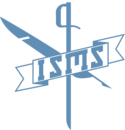Call for Abstracts
The International Society of Military Sciences calls for
abstracts, posters, full papers
to be presented at the Virtual Conference of the Society
hosted by the Royal Military College of Canada,
11-14 October 2021
Please send submissions to Conference@isofms.org by 25 July 2021, indicating your preferred working group.
Organized panels, roundtables or sessions may also be proposed. Please indicate the point of contact for group submissions. Address enquiries to the Secretary.
Abstracts should not exceed 500 words and should be accompanied by a biographical note of up to 200 words.
Background
At the 2019 Vienna Conference, the Society debated the breadth of military sciences. It defined military science (singular) with a narrow focus on strategy and operational art, and military sciences (plural) with a broad mandate to apply all scientific knowledge to the problems of security - human security, national security, and international security. The narrow focus assumes a hostile intent—an enemy—engaged in a conflict of wills; it demands strategies to combat enemies. The broad focus envisages many actors and circumstances that may undermine security; it demands the application of all branches of science to circumstances where there may be no clearly hostile enemy but many conditions threatening security.
Resilience, individual or collective, is the ability to bounce back—or forwards—from adversity and challenge.
Cohesion is the act of forming a united whole. It implies mobilizing collective resources to respond effectively to security challenges.
Disruption implies a wide range of disturbances and problems, including aggression, attack, subversion, threat, manipulation and deception. Disruption can include legitimate protest and disruptive events like pandemics and climate change. Effective responses to disruption can enhance resilience and cohesion, supporting human security, national security, and international security. How must military sciences progress to meet these challenges?
Timeline
25 July - submission deadline for proposals
25 August - notifications of acceptance
15 September - platforms for collaboration open online, abstracts and presentations posted for discussion
11 October - opening social event online
12-13 October - opening plenary, parallel working group sessions, closing plenary
14 October - business meetings (research centres, librarians, journal editors) Meeting of Working Group Chairs and Council Meeting
30 November - Publication of abstracts and posters online
Working Groups - Special Panels and Collaborations
The virtual conference is an opportunity to advance research and publication projects in the interests of member institutions and collaborative scholarship. Projects at any stage of development are welcome. Work listed below is in progress. If you are interested, you may contact the working group chair listed or the conference organizers. There will be both Synchronous and asynchronous platforms for collaboration to accommodate time zone differences. Business meetings for military research centres, military librarians and military journal editors will also be held during the conference.
Working Group 1 War Studies - Marzena Zakowska
Book project on the nature of modern war, particularly the continuum of grey area or sub-threshold phenomena, and security problems for small states. Change in the nature of war. new challenges of deterrence, compelling, and being compelled for small states. The evolving body of knowledge for the military profession.
Working Group 2 Military History - Art Johanson
Retrospectives on the future of war: what did we get right, wrong, and why? How does this help us understand response to disruptions and the maintenance of national cohesion for security? See also the hundredth anniversary conference.
Working Group 3 Military Technology - Hannu Kari
Impact of emerging technology on small country security. Predicting areas for investment. Complex interactions of new technology, applications, ethics, law, doctrine, impact on operations from a physical and psychological perspective. How does new technology change the way we see wars and the role of defence forces, how we do our jobs, and what kind of personnel we need? How to respond to technical failures?
Working Group 4 Military Leadership, Command, and Basic Competences - Soili Paananen
Leadership and soldier skills for resilience and cohesion.
Working Group 5 Military Law and Ethics - Afton Maisonneuve, Daniel Sommers
Military justice systems, domino effect of ad hoc legislation, law vs ethics, comparison of legal responses to common problems, adjusting to social change and new norms of behaviour.
Working Group 6 Security and Defence Policy - Laurence Furst
Resilience and resilience narratives. National principles and unprincipled opposition. Ethnic secession and military cooperation. Harbingers of future security and defence policy problems - breakdown of order, genocidal wars, new technologies affecting policy.
Working Group 7 Armed Forces and Society - Rene Moelker
Resilience and social cohesion. National narratives, recognition, accommodation, integration, and exclusion of minorities and identity groups. Apologies, truth and reconciliation, protracted social conflicts and "fifth column" fears.
Working Group 8 Defence Economics and Management - Markus Gauster, Robert Beeres
Non-military threats to security, resilience, cohesion; impact of disruptions on readiness and response; innovative approaches to crisis management, comprehensive approach and cross-domain operations; supply chains, autarky and interdependence.
Working Group 9 Military Education - Nuno Loureiro
Sharing bibliographies for military education, reading lists, curricula, course outlines; moving the scope of PME studies beyond national borders, taking advantage of remote teaching technologies - international simulations and virtual exchanges, transnational problem-solving for cadets, staff-colleges, and national staff. Back-ups for technical failure. Student-centred learning. Challenges to university administration.
Working Group 10 Strategy - Dirk Heinzmann
Strategic Design and Strategic Planning. Strategies for resilience and national cohesion. Strategy development for sub-threshold conflict and grey-area phenomena.

